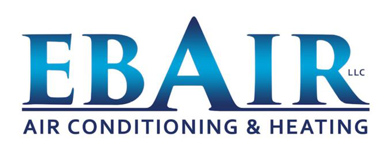
To combat increasing energy expenses and embrace sustainability, many homeowners are trying new methods to maintain comfort levels while using less energy. With help from the Inflation Reduction Act, federal tax credits are available for upgrading to more efficient HVAC systems, such as air conditioners. These credits offer a big chunk of the installation costs, as long as the homeowners work with qualifying equipment and submit the right paperwork.
If you’re trying to avoid a long process, we’re offering to help! E.B. Air hopes this guide will give you what you need to secure 2024’s HVAC tax credits. Here’s how to make it happen.
Understanding the HVAC Tax Credits
These valuable tax credits for boosting your home’s energy efficiency are just one small part of the recent Inflation Reduction Act. With the higher cost of energy making an impact, helping more homeowners upgrade their equipment is always beneficial. The main intention of these credits is to help pay for high efficiency HVAC equipment and other projects. Of particular importance are the Energy Efficiency Home Improvement Credit and the Residential Clean Energy Credit.
But keep in mind, in order to claim your credits, you’ll need to fill out IRS Form 5695. Additionally, this form has to be submitted within the same tax year the upgrades were installed, not purchased.
Maximizing Savings with the Energy Efficiency Home Improvement Credit
Through 2032, the Energy Efficiency Home Improvement credit empowers homeowners by offsetting up to $3,200 each year for installing higher efficiency home upgrades. This equals 30% of the total project’s cost. You should be aware that in order to be eligible for the maximum amount, it involves making different investments. For example, you’ll get up to $2,000 for installing a higher efficiency heat pump. This can be paired with an additional $1,200 in credits for more projects in the tax year.
While new heat pump installation projects are a popular option for the tax credit, other HVAC upgrades like efficient furnaces and air conditioners also qualify. You’ll need to confirm the make and model’s energy efficiency rating is sufficient to qualify.
Exploring the Residential Clean Energy Credit
The Residential Clean Energy Credit provides 30% savings on a variety of residential clean energy efficiency projects. Eligibility only applies to homeowners seeking to update existing or newly constructed homes. While the Home Improvement Credit highlights utilities and HVAC systems, this credit is instead designed around renewable energy sources like solar and wind energy.
Some provisions of the tax credit include the requirement that installation must occur between 2022 and 2032. But at the same time, homeowners can carry forward excess credit to offset future tax obligations. This is a great way to soften the entry into investing in clean energy.
What Else Is Eligible for These Tax Credits?
Because HVAC systems are one of the biggest expenses on your energy bill, these tax credits can guide you to the most energy-efficient options. But home energy efficiency can be improved in many other ways. Apart from the previously listed HVAC upgrades, {you could also choose|other eligible items include|you also have access to:
- Heat pump water heaters
- Electrical panel upgrades
- Upgraded electrical wiring
- Insulation, air sealing and ventilation enhancements
- High-efficiency electric stoves, cooktops, ranges or ovens
- Efficient heat pump clothes drying solutions
- High-efficiency water boilers
Like the HVAC systems, you’ll need to check that your preferred make and model features the eligible energy efficiency ratings.
Maximizing Your 2024 HVAC Tax Credits: Top 3 Tips
While all the listed upgrades can enhance your home's energy performance, some planning ahead will ensure they offer the most long-term benefits. Maximize your HVAC tax credits with these reminders:
- Perform an energy audit to pinpoint valuable enhancements. Trust experienced HVAC companies to pinpoint essential products and services.
- Enhance your home's envelope by addressing inefficient windows and doors.
- Explore potential rebates from utility companies for clean energy upgrades. Renewable sources like solar, wind, and geothermal contribute to community power grid sustainability.
- Remember to consider financing plans offered by service providers.
Secure Your 2024 HVAC Credits with Help from E.B. Air
Partner with local HVAC professionals like E.B. Air for help with home energy audits and new installation projects. Our experienced installers will deliver everything you need for home energy efficiency upgrades.
